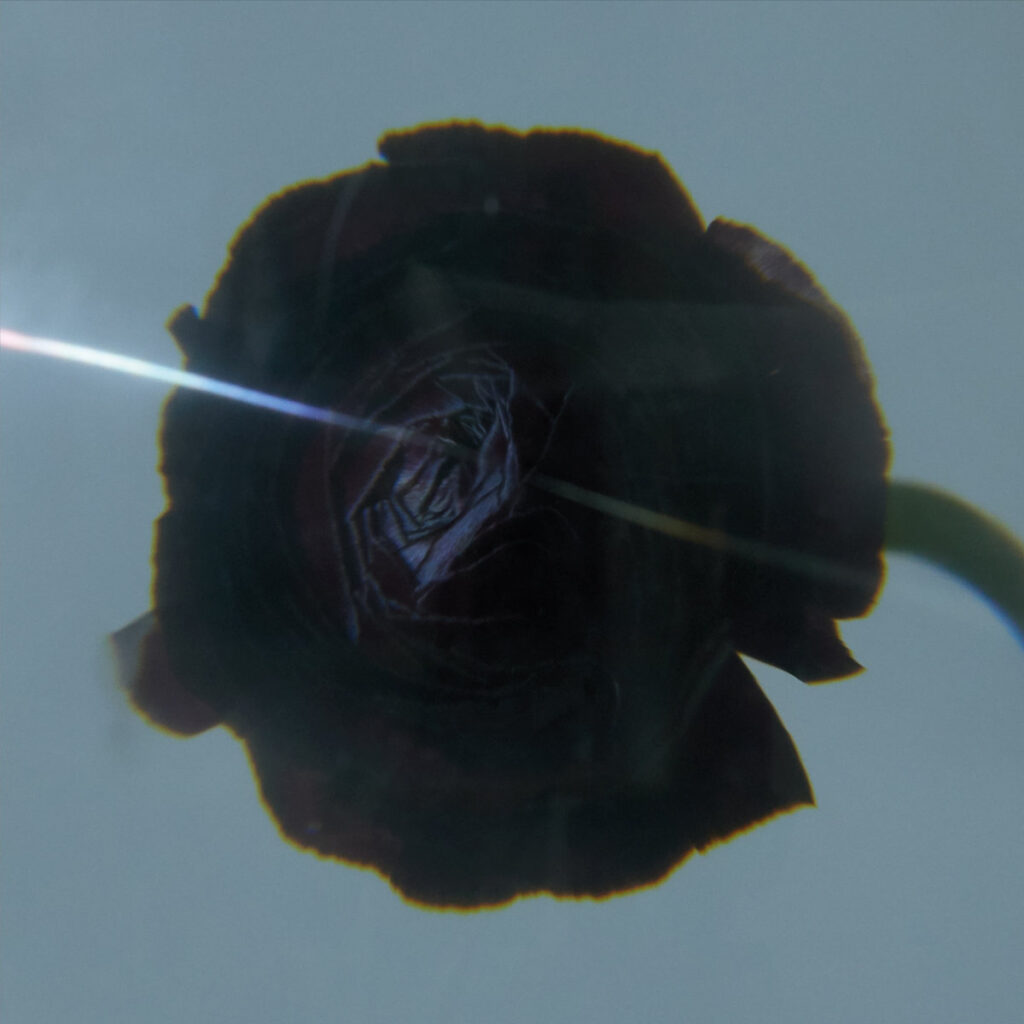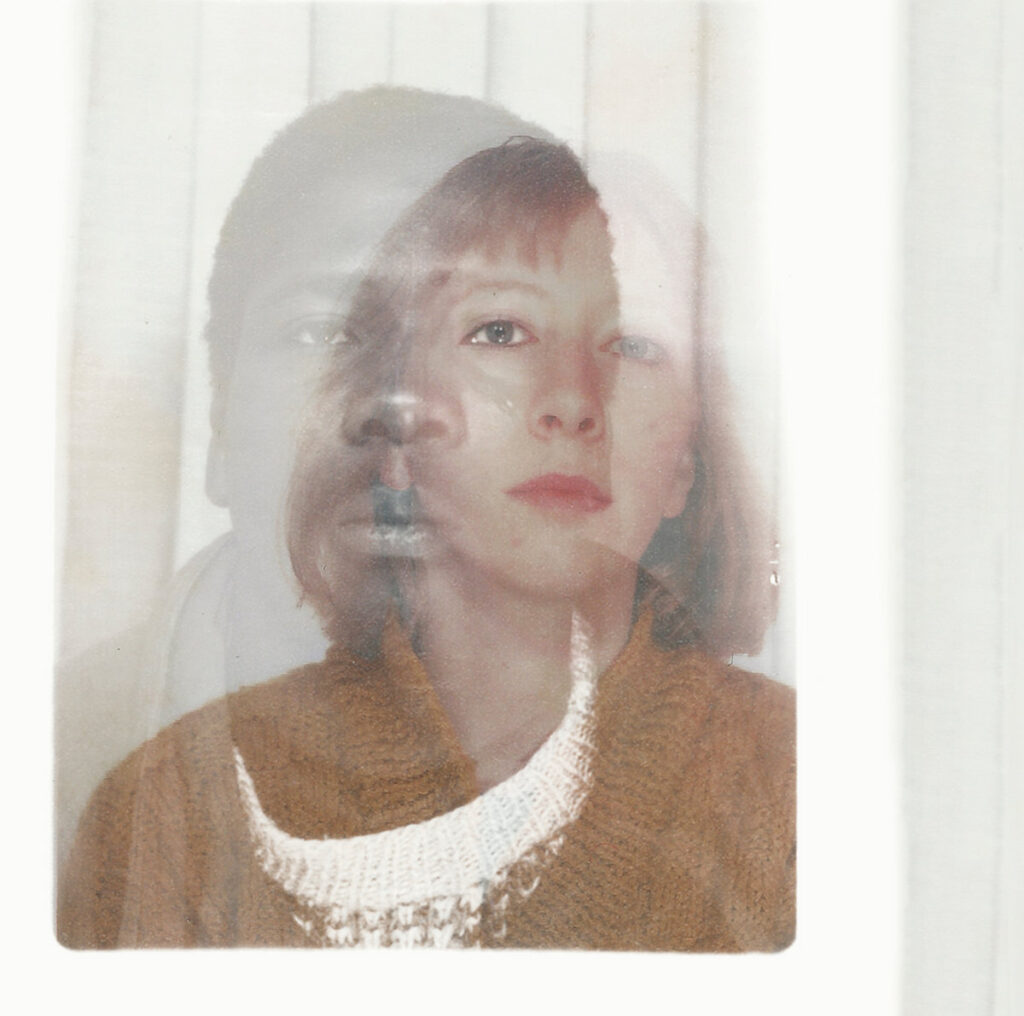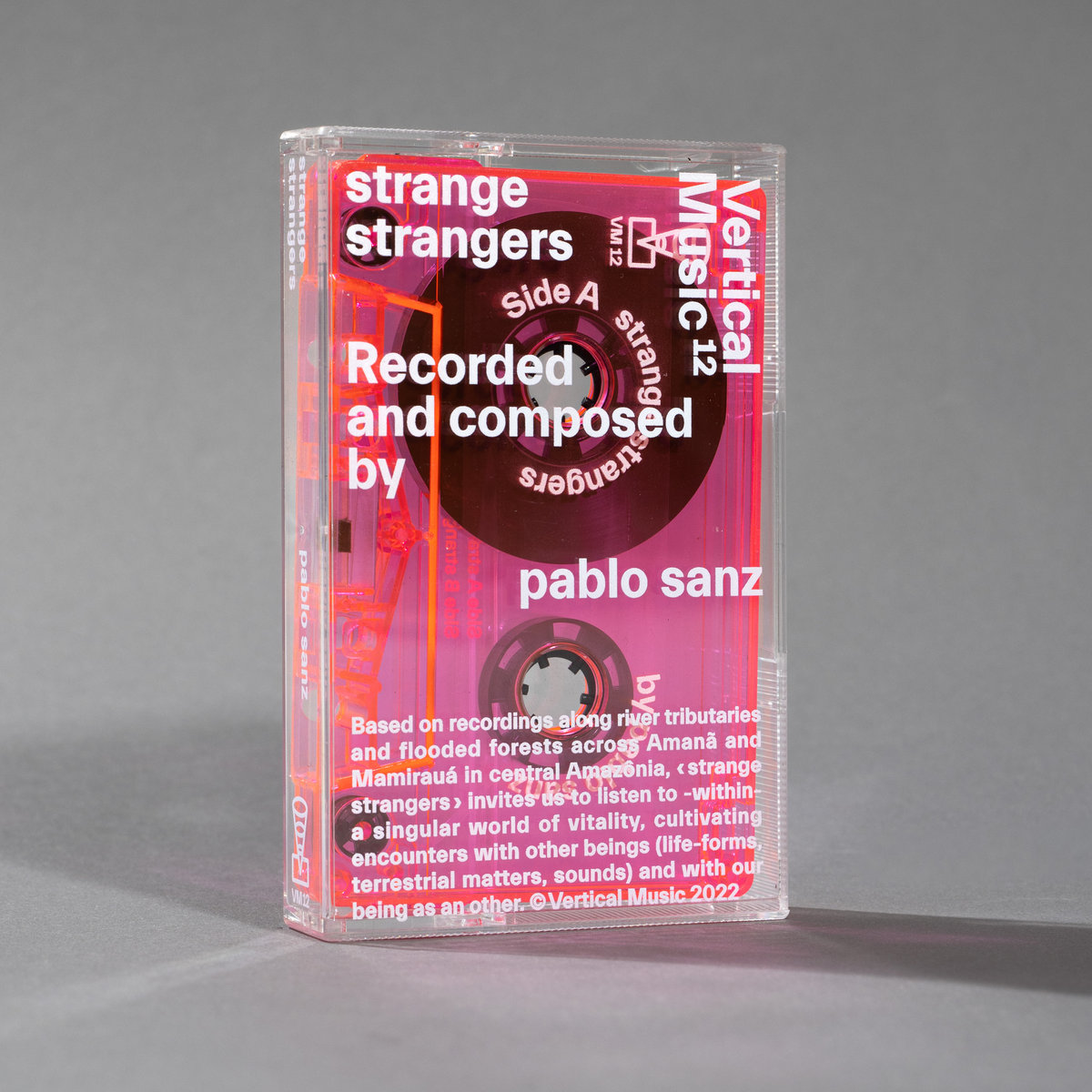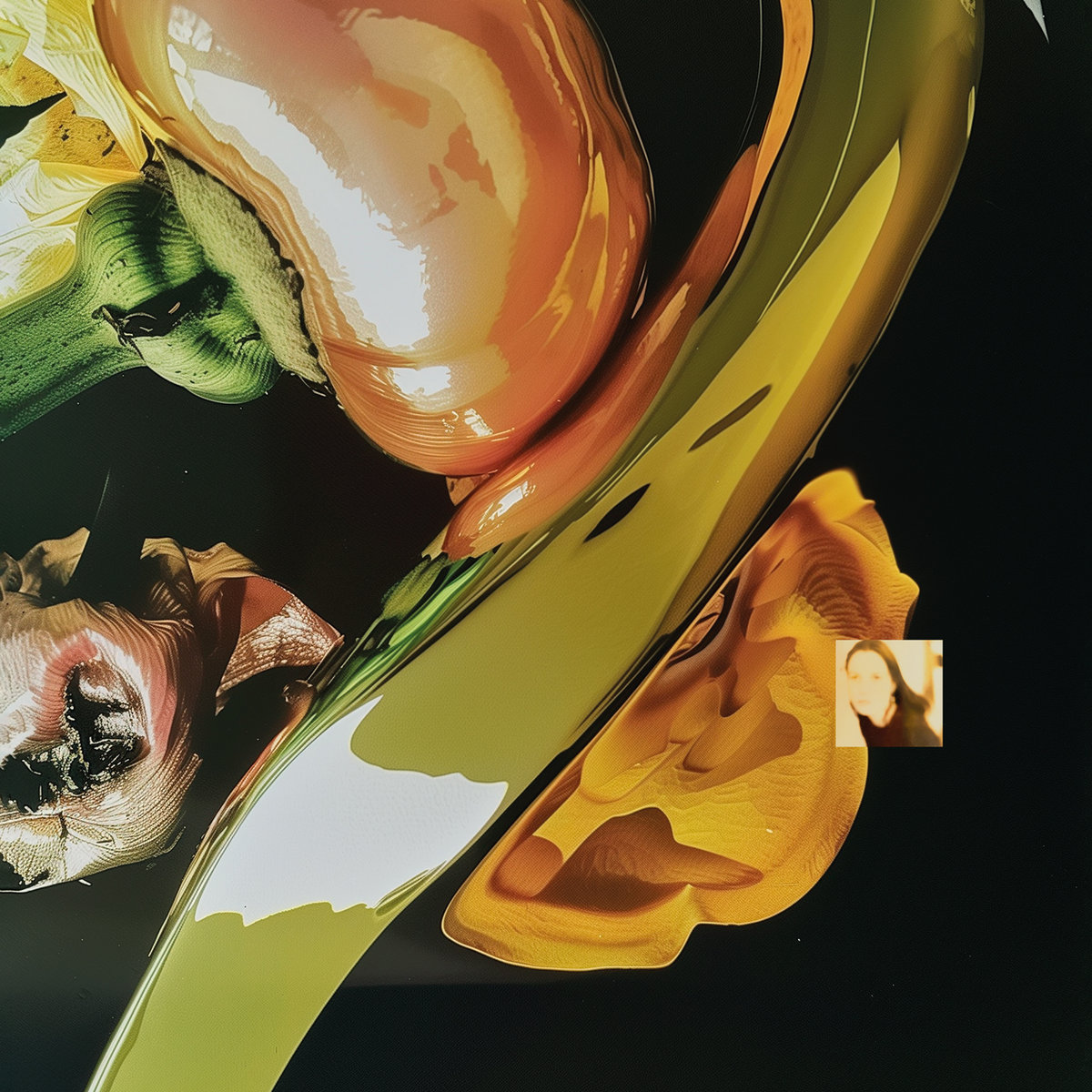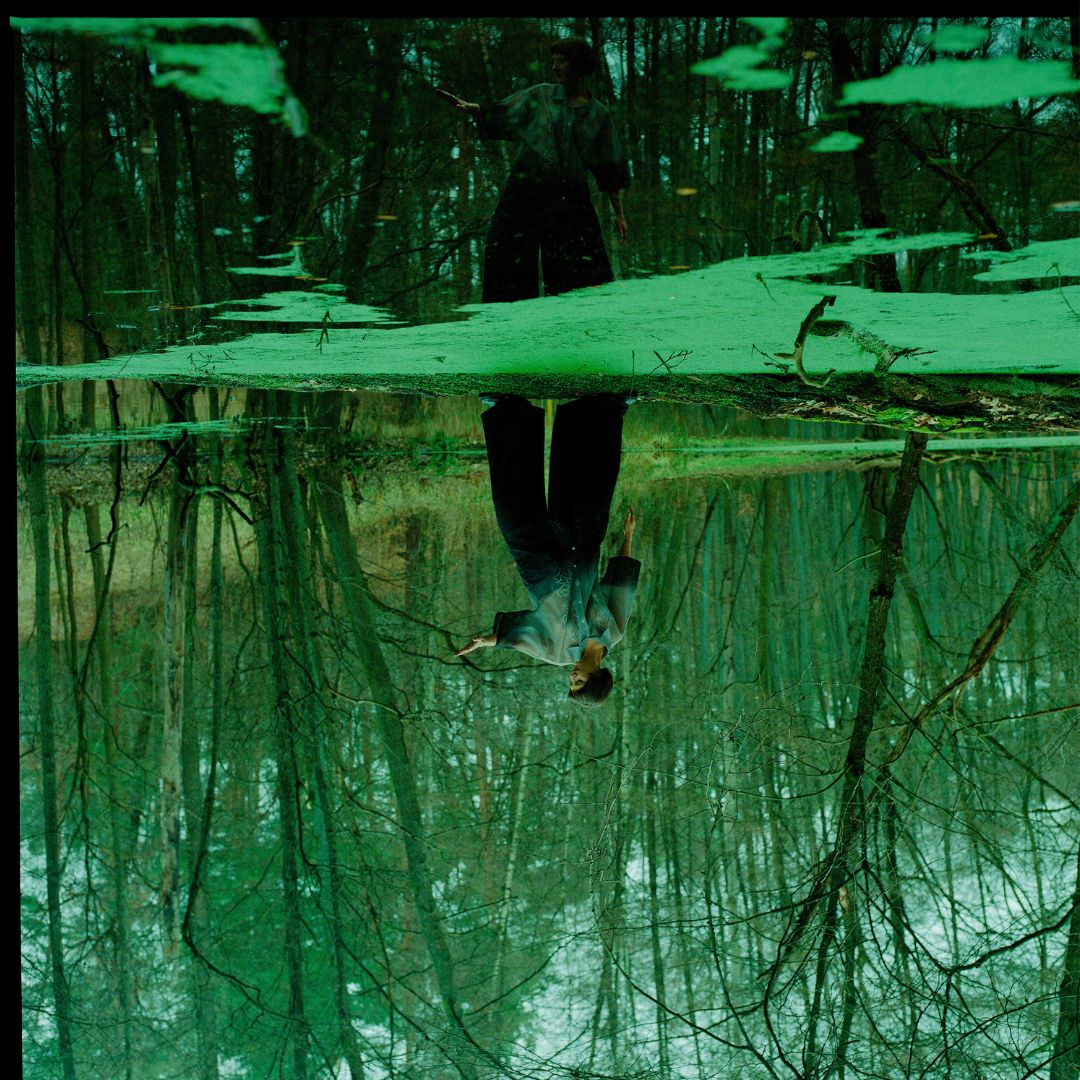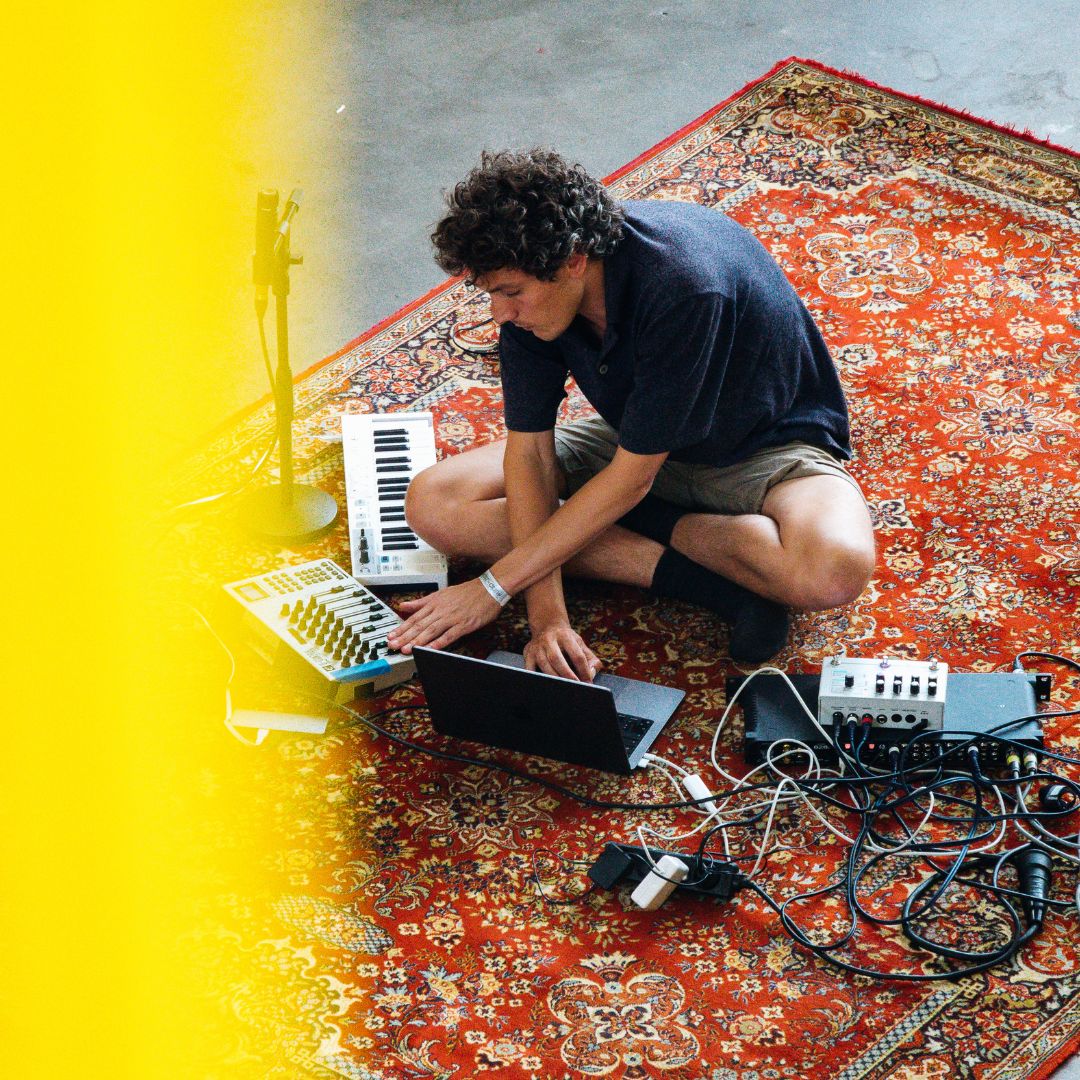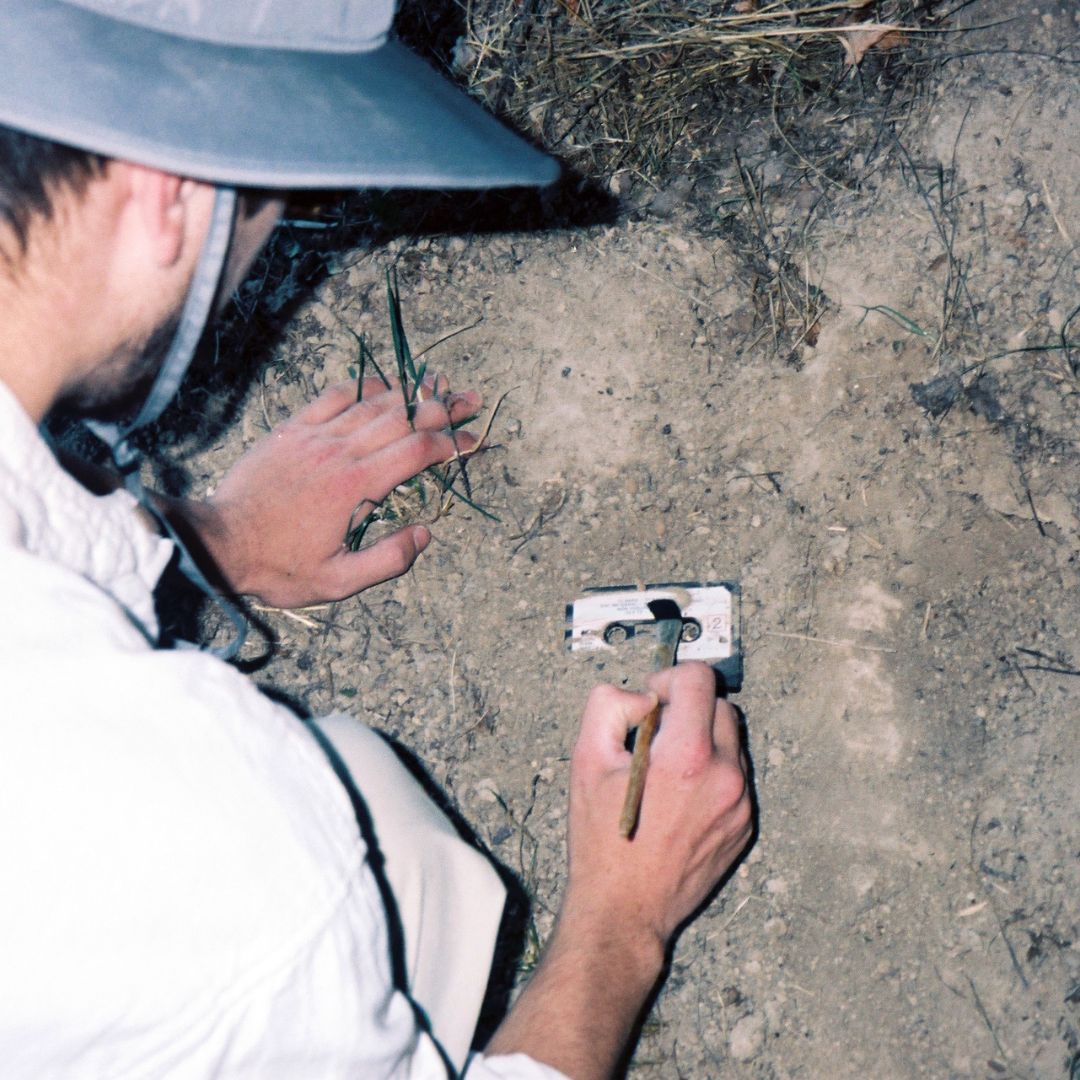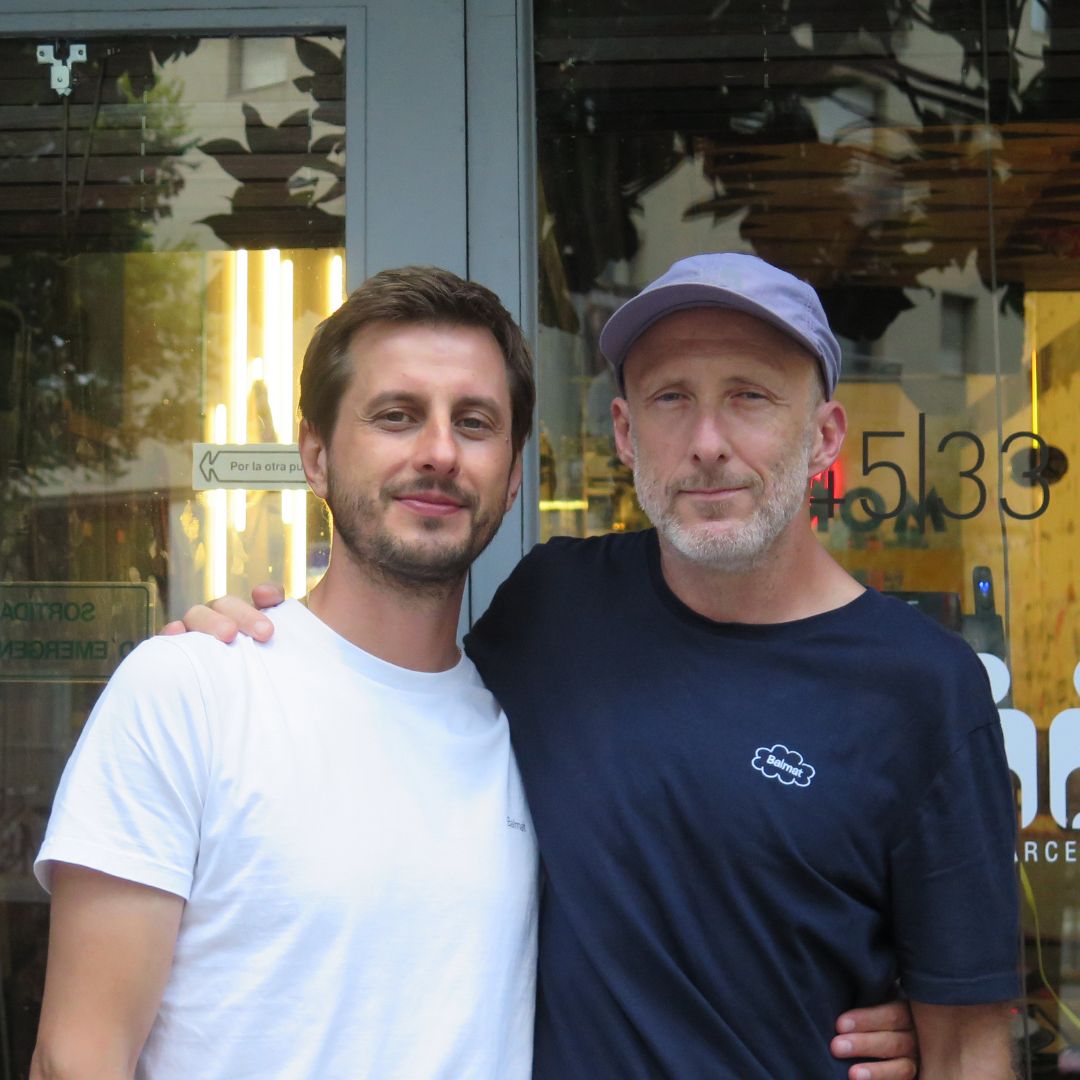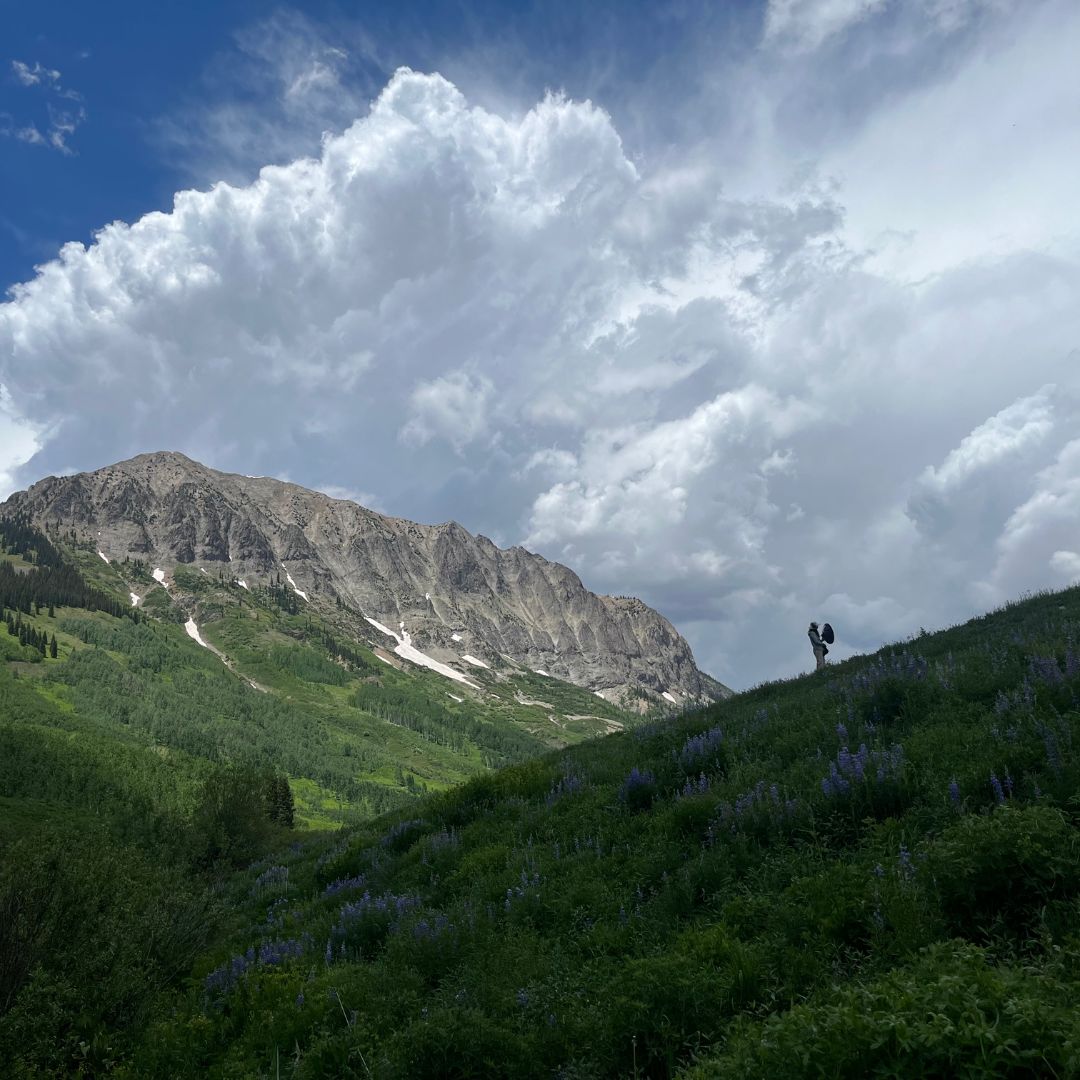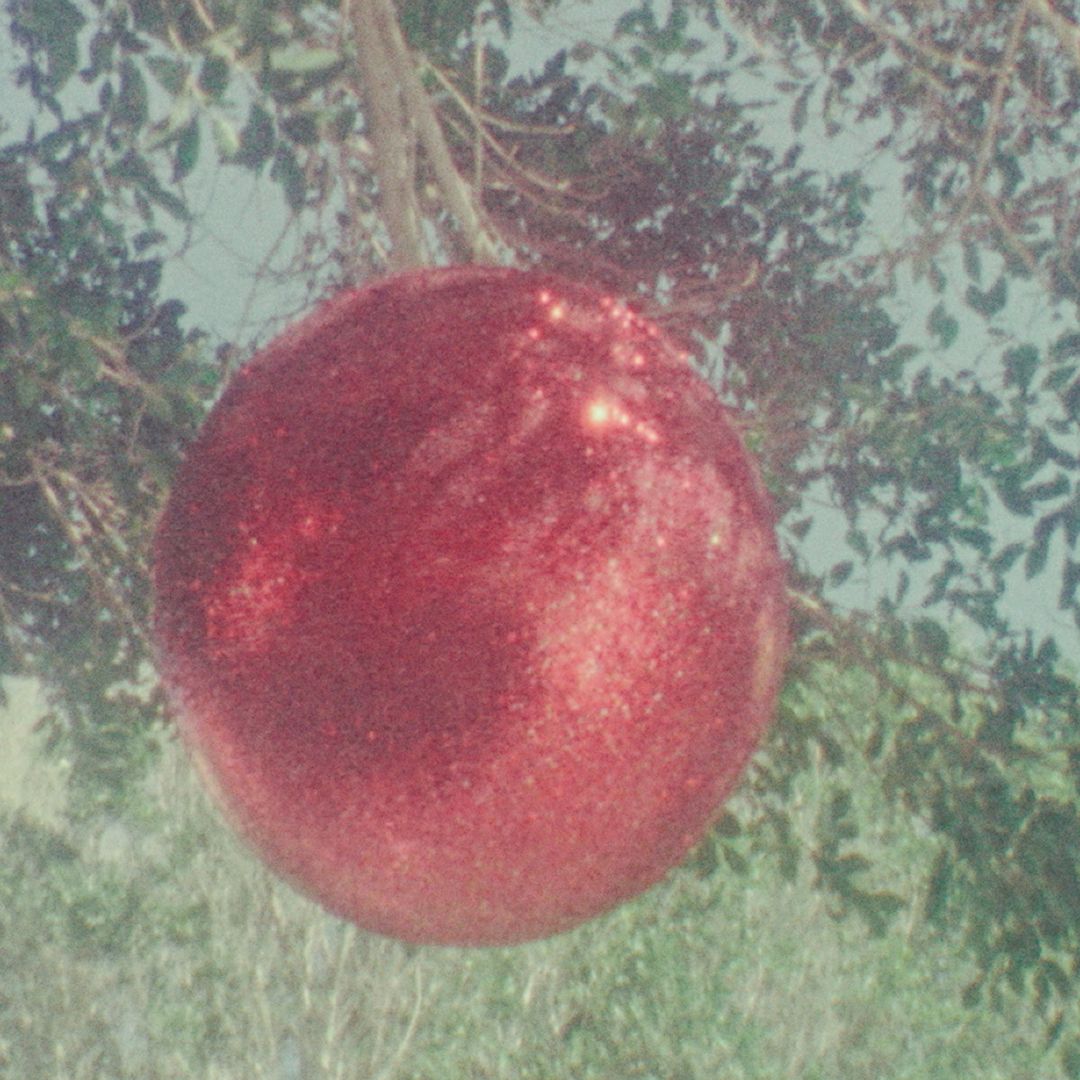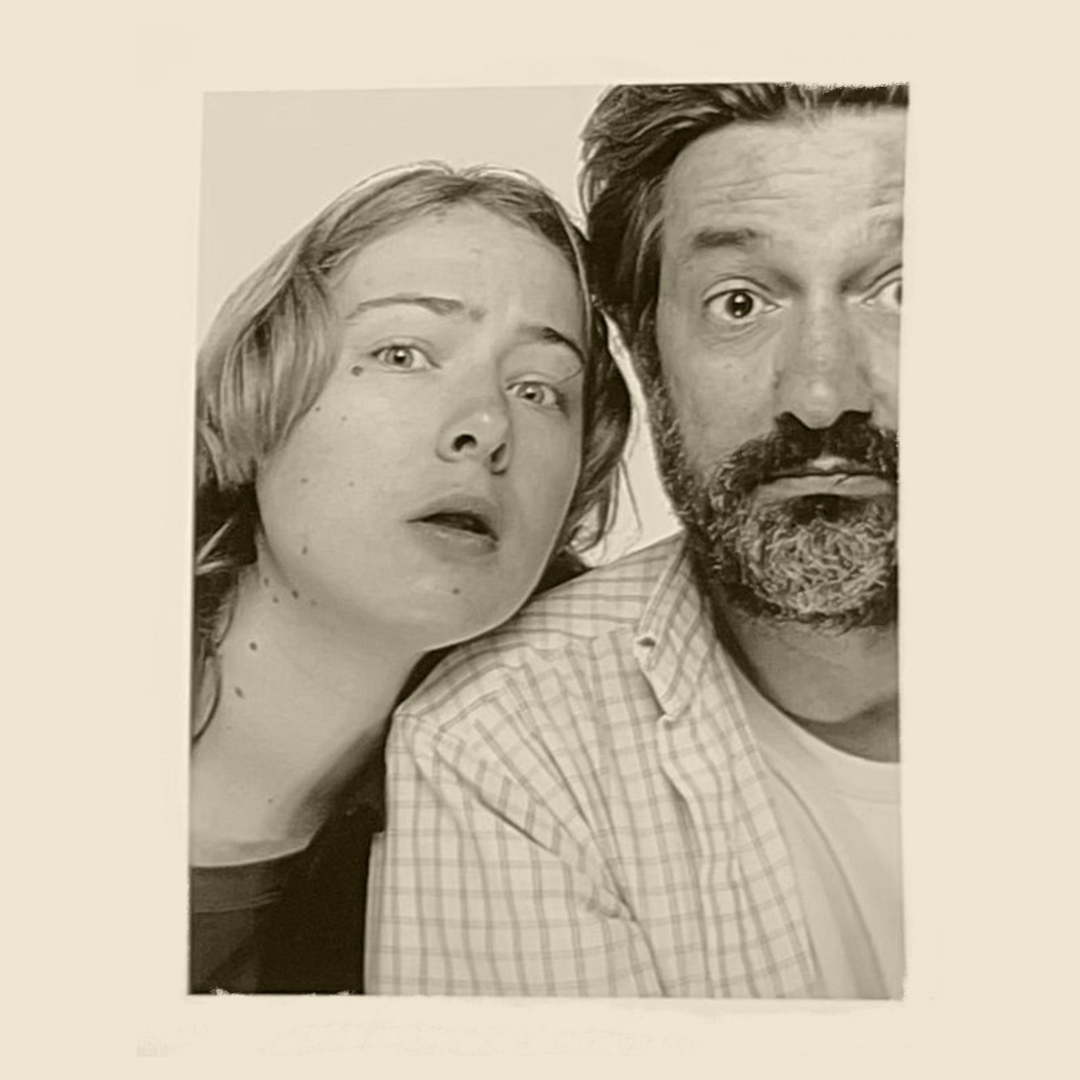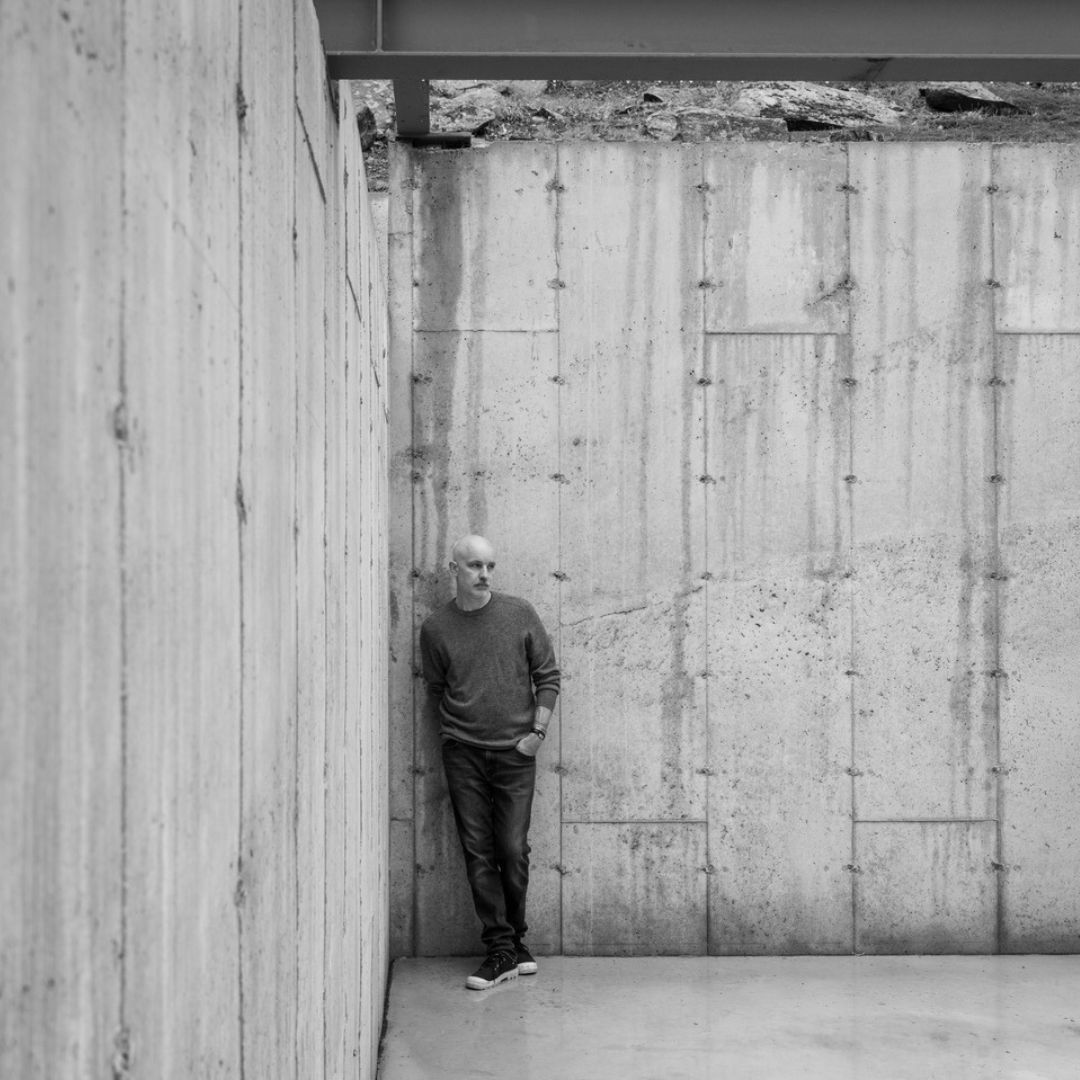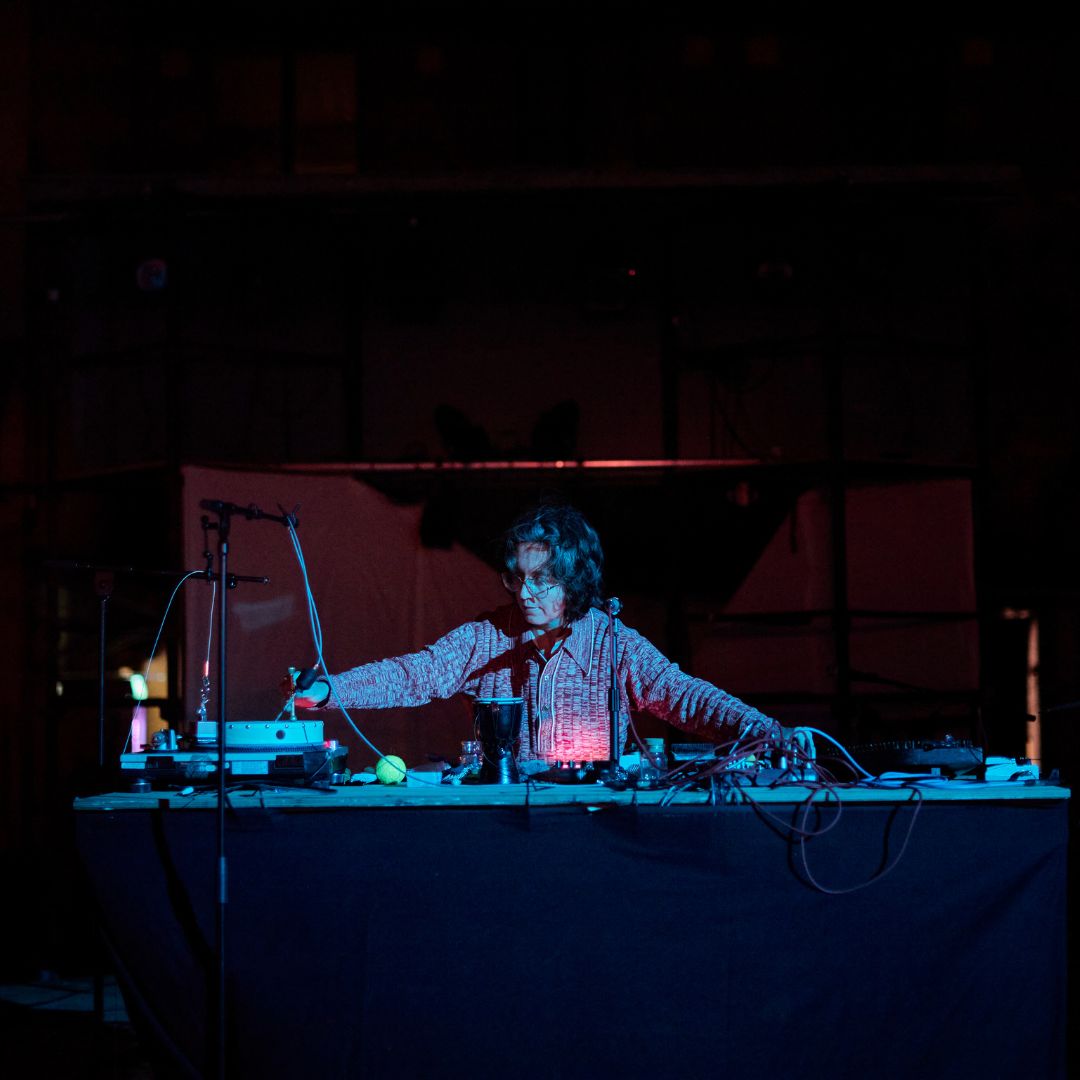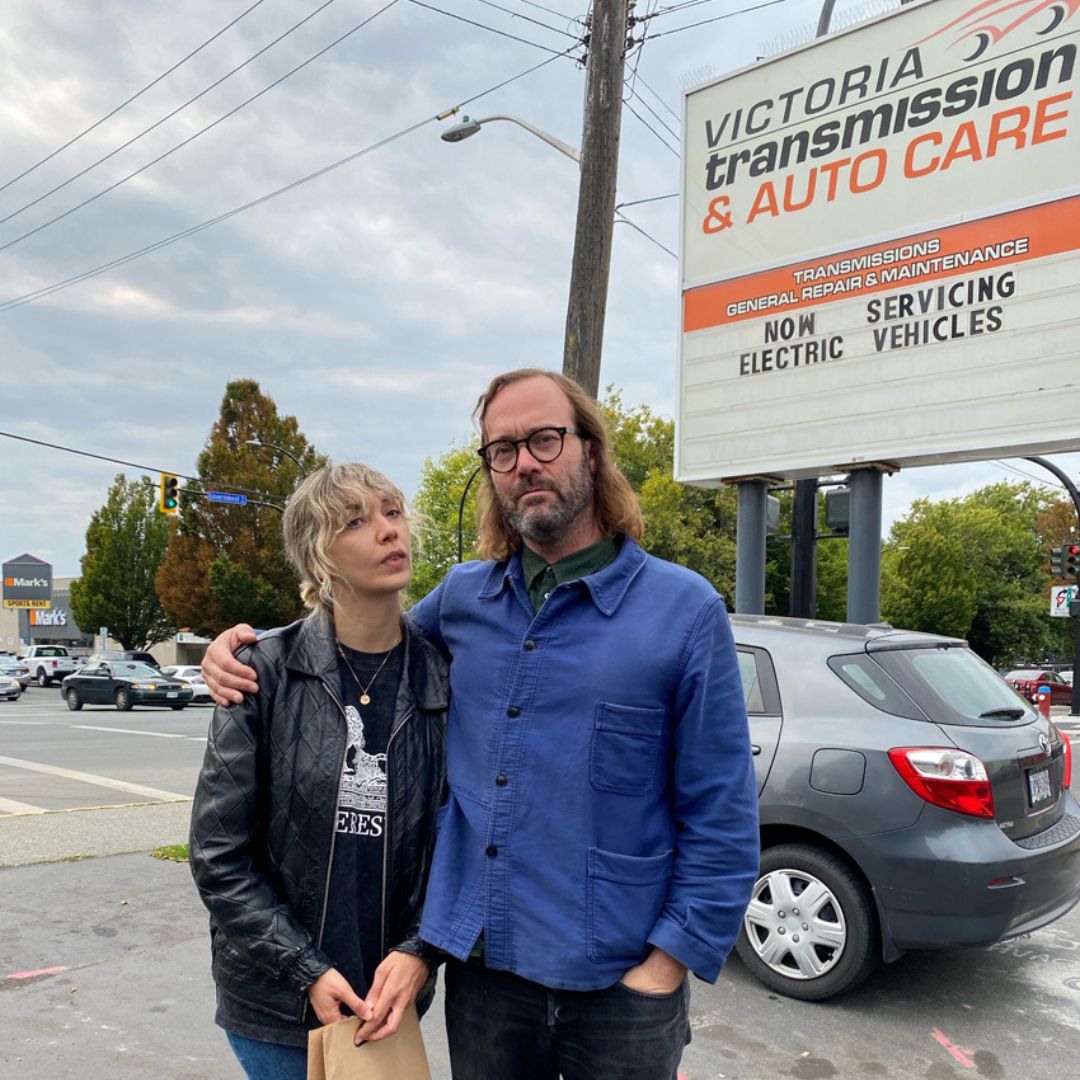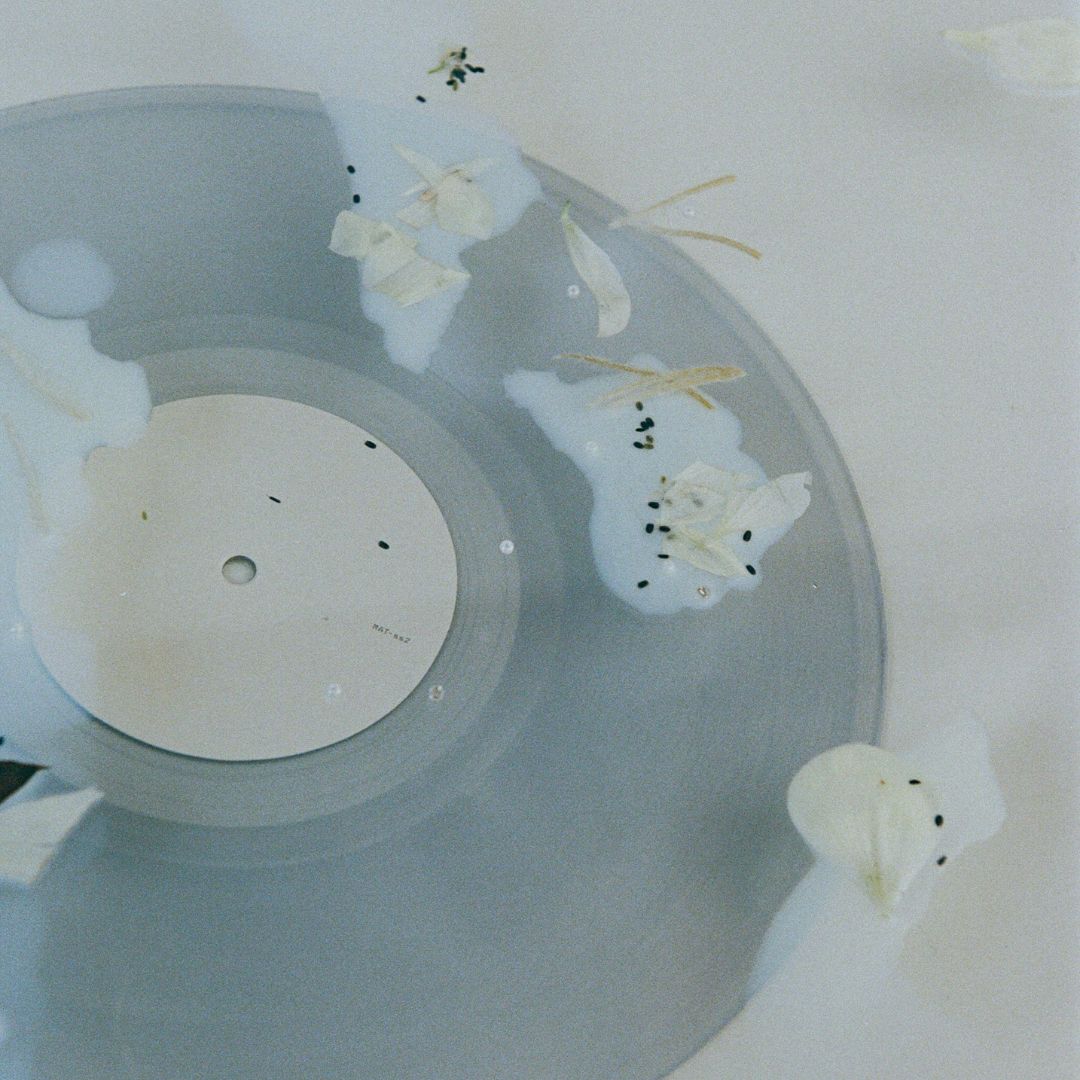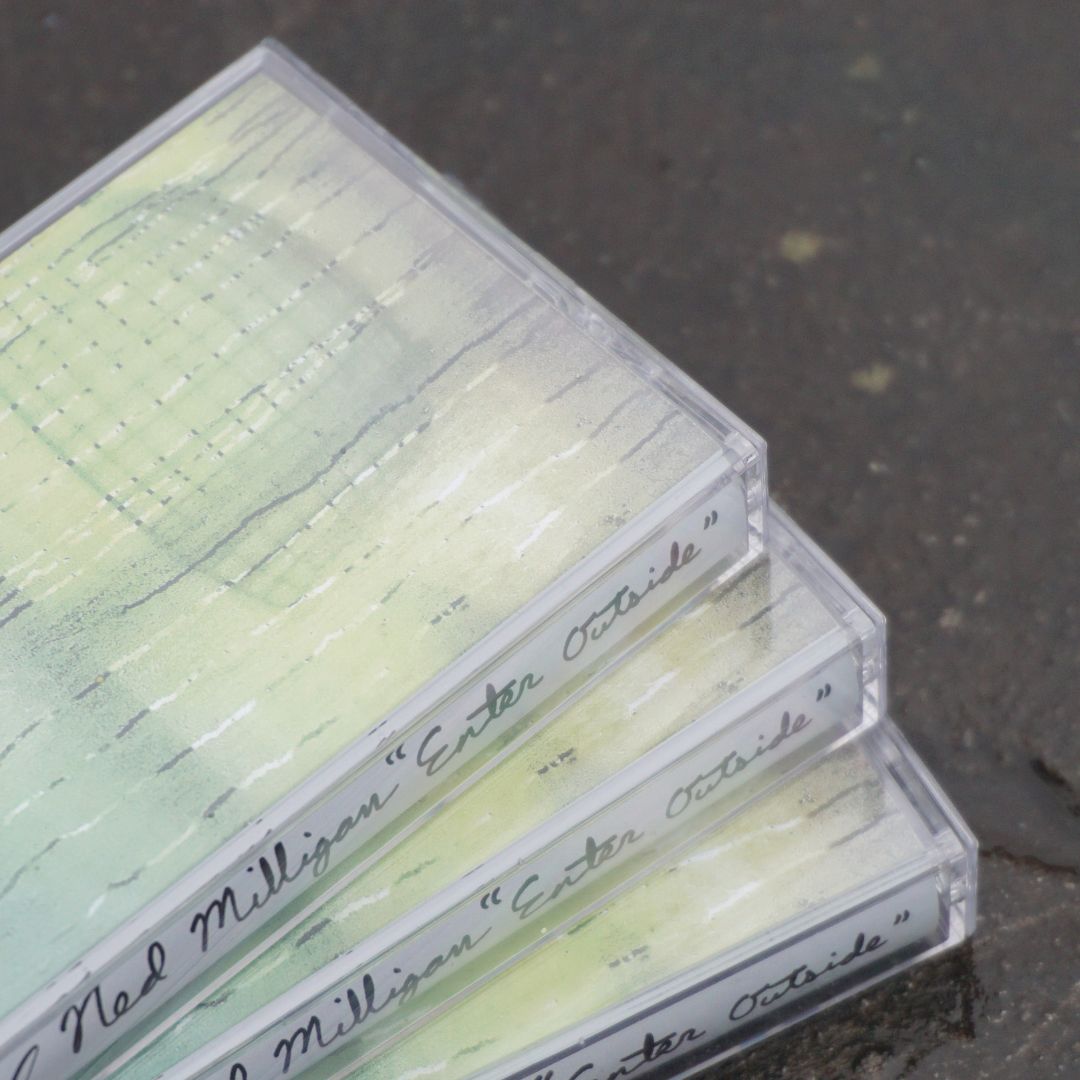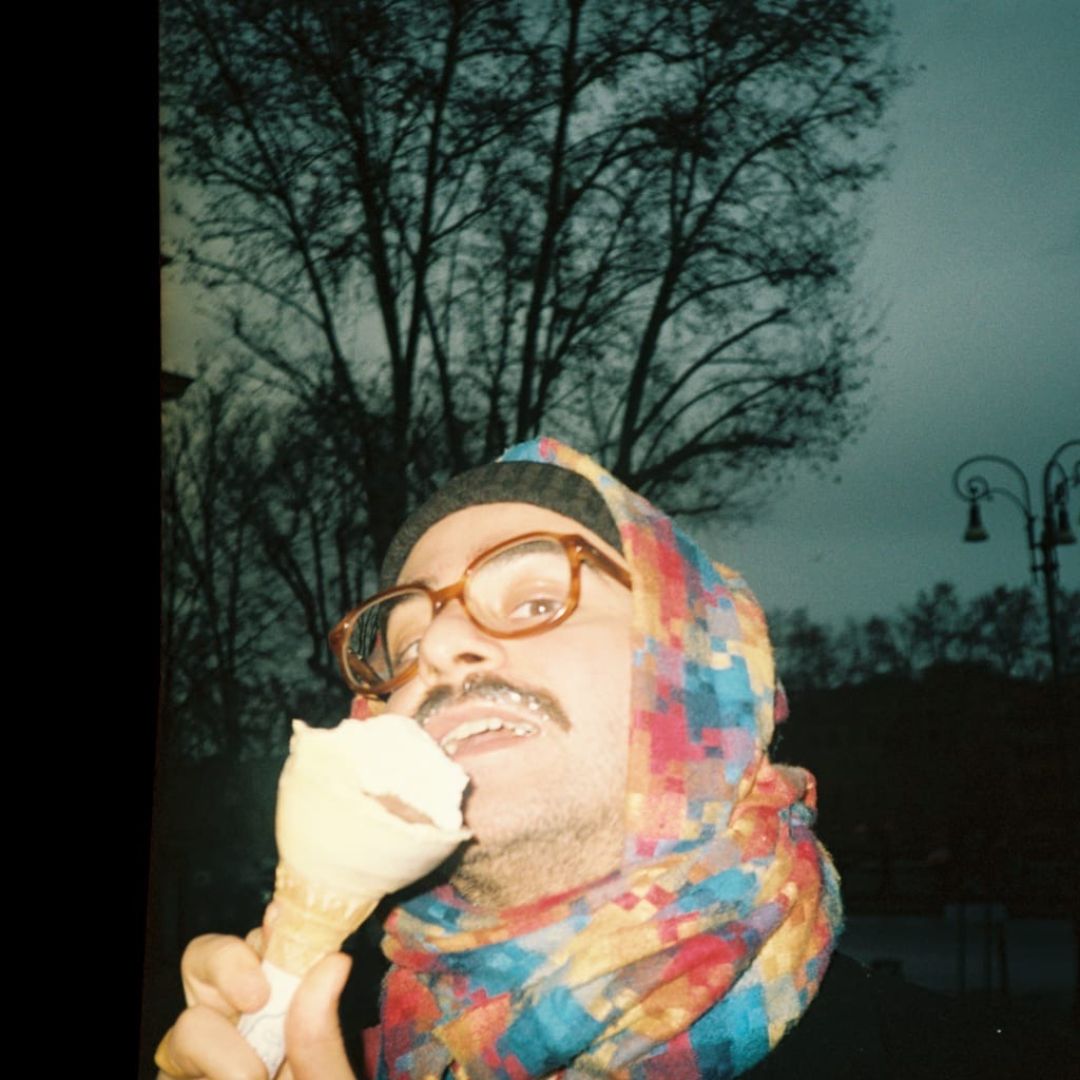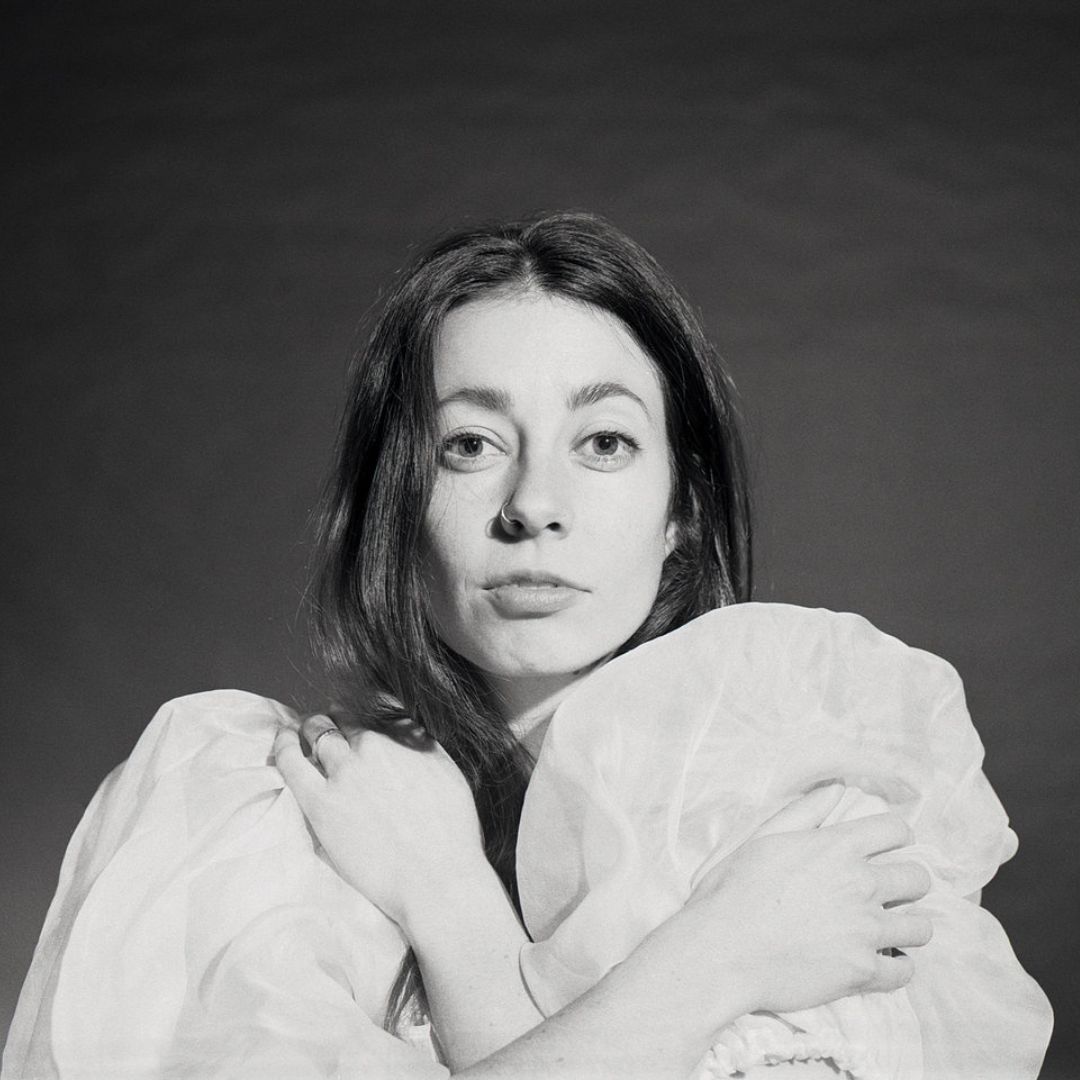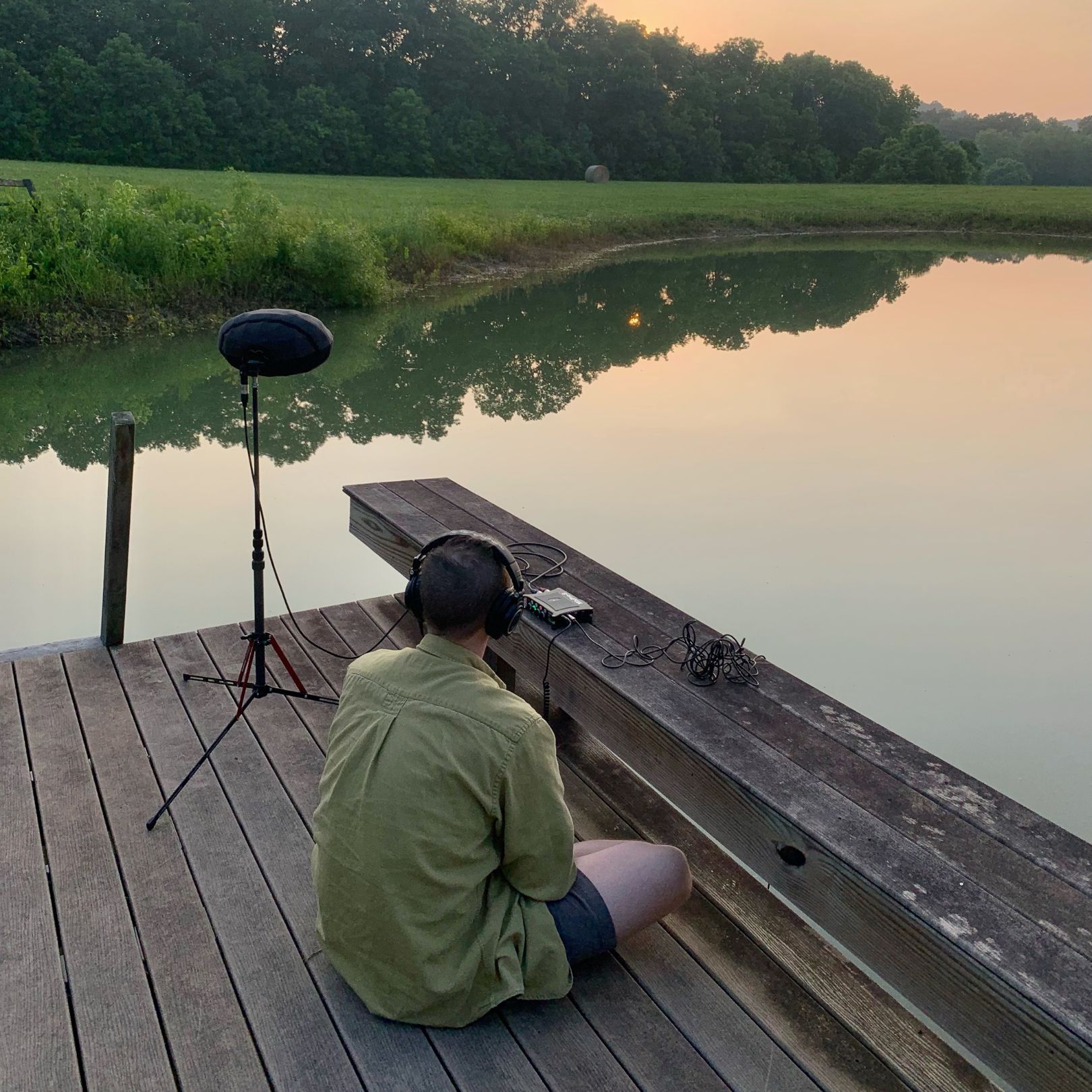reliving a long lost youth with Pablo’s Eye
The 90s was undoubtedly a prolific decade for Pablo’s Eye. Aside from releasing six albums between 1989 and 1999, they were also heavily involved in many artistic projects where music meets architecture, video, theatre, dance and design.
Fast forward to today, what they thought to be a closed chapter from more than 20 years ago is very much alive again, in part due to a trilogy of selected works released on Stroom. Since their comeback in 2018, Pablo’s Eye has not only been actively making new music again, they have also started to perform live in concerts for the first time in almost 30 years.
Curious to know more about the people behind the collective, we met Axel Libeert and Marie Mandi in their lovely apartment in the heart of Brussels for an inspiring evening filled with ruminations and insights into the unique world of Pablo’s Eye.
You haven’t released a new album since 1999. What made you decide to open that box again?
Axel: Over time, most of our records went out of stock and our albums strongly rose in value on Discogs. We suddenly got requests from all over the world and we had the opportunity to release our music back from 25 years ago.
Marie: We wondered why because we didn’t really understand. We got questions from America and even as far as Asia.
Axel: I said no to everybody because I wasn’t interested in having our music released again. I didn’t really care about revisiting the past. But then, Ziggy from Stroom called.
Marie: And he can be very persistent.
How did the collaboration with Stroom go for the compilations?
Axel: Ziggy proposed to work on 3 records together. I thought “3 records, my god!”.
Marie: He really took his time. He asked for all our records and then listened to them thoroughly before coming back to us with a proposal. When he came back to us, we were really confused with the selection. The music came from different albums released in different periods of time. There was no timeline. Sometimes there was even a jump of ten years between the tracks. It was very weird to us.
Axel: At first, I really didn’t understand it, but I’m so happy with his selection now. I discover a lot of my own work just by going through it. He feels things that we didn’t see or hear.
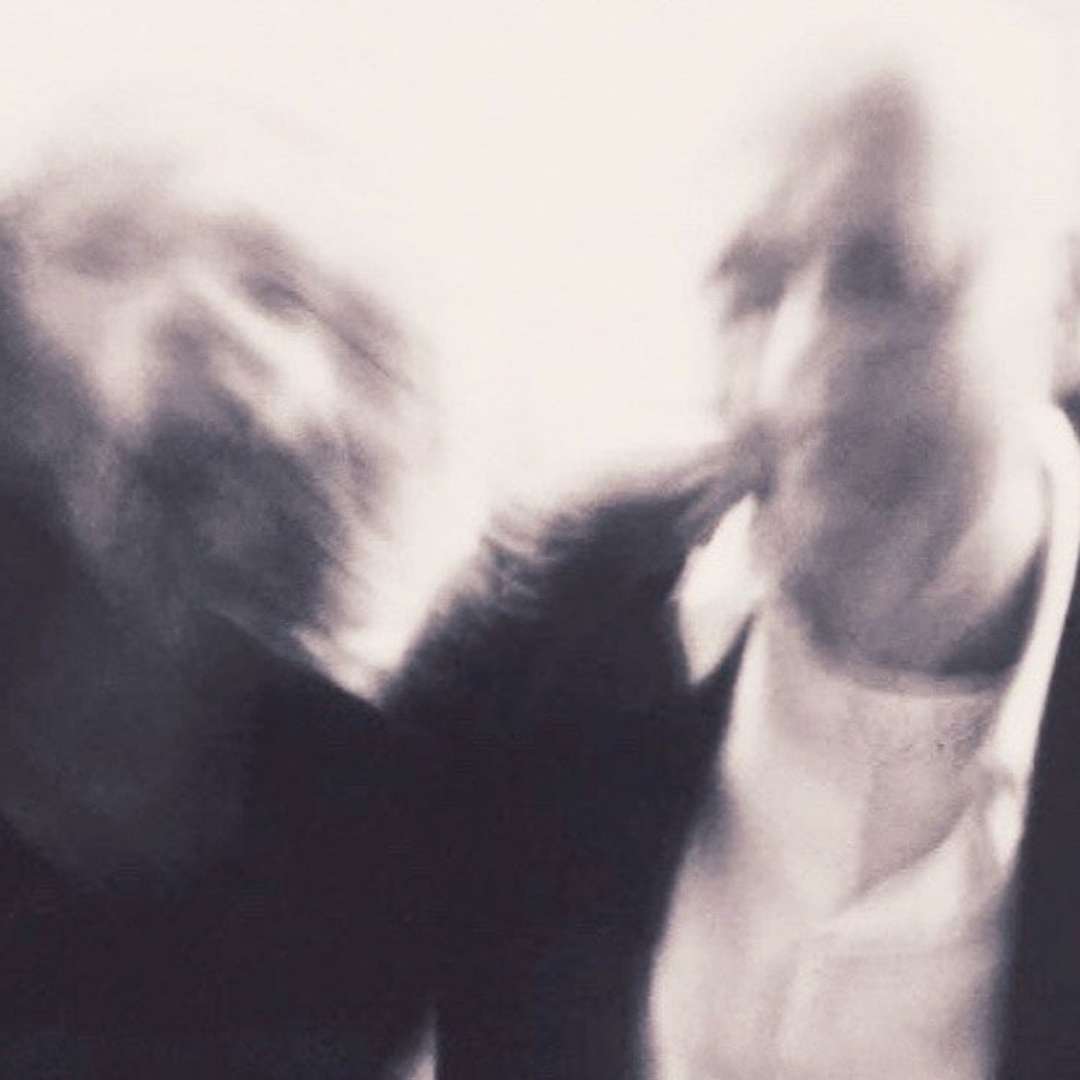
In what sense did it make you rediscover your work again?
Axel: First of all, it makes you listen to your own music again. That music was a thing of the past for us, so we didn’t listen to it anymore.
Marie: You also get to rediscover details that you simply just forgot about.
Axel: Ziggy is also a DJ, so I thought he just wanted to remix or sample our work.
Marie: We thought he was looking for dance-oriented music, so we were surprised that he was more interested in our ambient-like tracks.
Axel: There was a kind of sensibility that I was surprised to find in our music. There was a sort of feminine aspect to it that I overlooked. Now, I am used to making music for commercials where the main thing is not to please the client, but to fit the project. It’s not about me and I just have to do whatever I can to make it work. Listening to our music again, I felt that there was something of my personality in the music, which I’ve lost maybe within my work during all those years. And it was a shock. It was like therapy.
Next to the music, we also really like the artwork of your releases with Stroom. How involved were you in the making of it?
Axel: The first time we met Nana, who does the graphic side of Stroom, we were immediately in love with her.
Marie: It was just like she could have been my daughter, you know. There was immediately a very good link between all of us.
Axel: We wanted to see it through someone’s eyes today, so we gave her carte blanche for the artwork on one condition. It had to be very personal. We even told Nana that she can have her own picture on the three albums if she wants.
Marie: It turned out to be quite challenging for Nana. She was used to getting a lot of input from the artists she worked with in the past.
How did it go? Are you happy with how that turned out?
Axel: Nana took it very literally. For the first compilation called Spring Break, she actually put her parents on the cover. She was like: “Personal enough?”
Marie: Also, the cover of the second compilation called Bardo For Pablo is actually a self-portrait of Nana.
Axel: We really love it. A lot of people even thought the cover of Spring Break was a photo of us, that I was the black man and Marie was the blonde girl.
Marie: You see, we never put our faces on our previous covers. People didn’t really know who we were or how we looked like.
Axel: It’s like a play, and we love this. There were so many funny situations because of it.
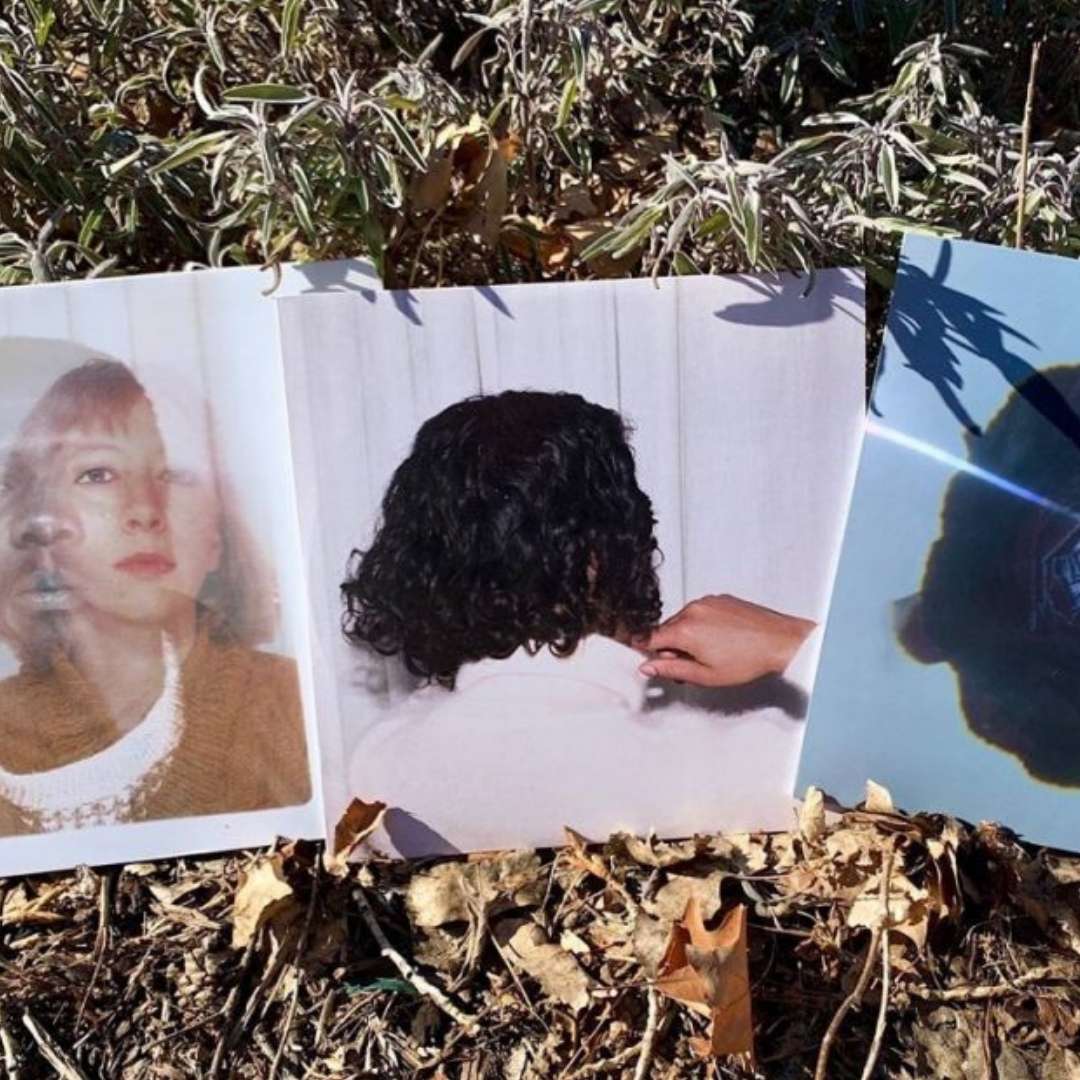
Like what?
Axel: I remember when Moses Boyd, an upcoming jazz drummer from London, was playing in Ancienne Belgique. To our surprise, we got an email from his management a few days before the concert that he really wanted to meet Pablo’s Eye. On the day of his concert, we went to AB while they were still unpacking and I said, “Hello, I’m Axel from Pablo’s Eye.” You know, when they saw me, I really saw the disappointment in their eyes. They were expecting to see a black man.
Marie: We had a great time nonetheless. A bit later in the evening, we asked, “Oh, by the way, you were surprised when you saw Axel. Did you expect him to be black?” Boyd’s manager answered, “Yes, I thought it was a great joke.”
Axel: Nowadays, there are a lot of Afro-American artists and also English artists of African origin doing experimental music. But back in the 80s and 90s, that was not so common at all. Of course, there was a lot of experimentation in the jazz world, but electronic experimental music and a lot of avant garde music was mostly conceived by white men apart from a few examples like Julius Eastman or George Lewis. That changed completely nowadays. Even popular artists like Beyoncé or Kanye West include experimental ways of working in their music sometimes. Thankfully there are no boundaries because of gender or race anymore.
Do you feel that the acceptance of experimental music has changed tremendously over the years?
Axel: Yes, definitely. In general, there are many more niches than ever before, and there are way more people interested in those specific niches. There are also many more places as well embracing experimentation. Before, this music had no place to go. There’s also another big and important change I want to mention. Compared to our time, there are so many women now that are involved in doing music and experimental music, specifically. There’s a practical reason for this. I knew for a fact that a lot of female friends of ours were very intimidated to go to a shop and buy instruments. But now, young women can just buy a Mac with GarageBand and then they have all the tools they need. It’s fabulous. There are a lot of positive changes.
We’re curious. What music do you listen to personally?
Marie: That’s a tricky question. We listen to a lot of music. Often, we listen to classical music on radio programs like Klara.
Axel: We also listen to a lot of music digitally. We have a subscription to The Wire magazine and every time they speak about something new and exciting, we look it up on Spotify. The joy of finding new music never stops. Although, sometimes it’s also really nice to just enjoy the silence because of the nature of our work. I do a lot of synchronization between images and sound, which is a very active endeavour. It’s nice to give the ears some rest too every now and then.
So music has always been a part of both of your lives?
Marie: We’ve been together for 35 years and we have been working together for 15 years. Prior to that, I used to work in the fashion business. It hit a certain point where Axel had so much work that I stopped working in fashion, so we could work together. It has been a good collaboration ever since.
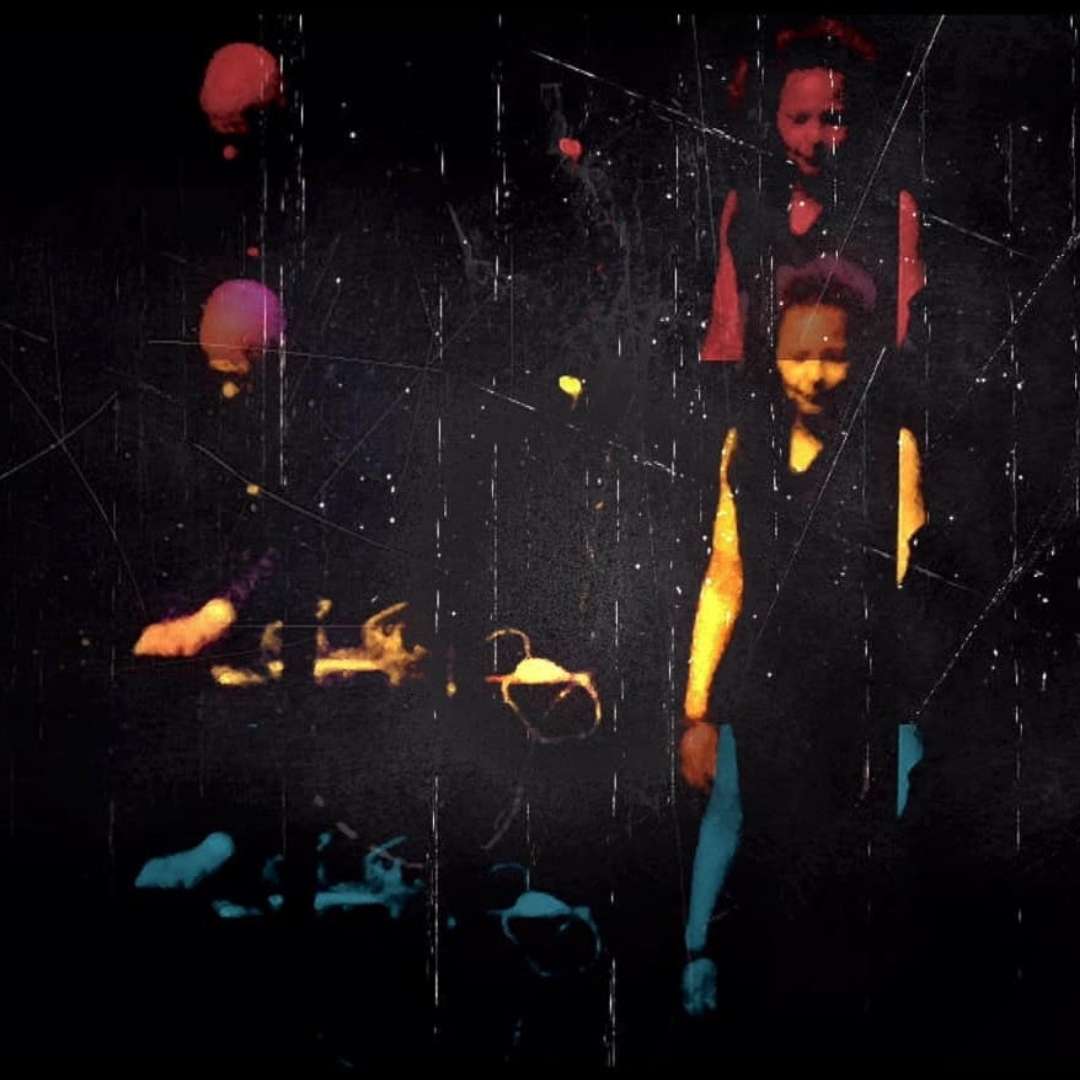
How does it feel to have Pablo’s Eye back in your life?
Marie: It’s funny in a way. Some people got really mad at us because we didn’t tell them about Pablo’s Eye and they found out through the Internet that it was us. You know, we moved on and it was really a closed chapter for us, so we didn’t really feel the need to talk about it.
Axel: Once we met Ziggy and Nana, we realized that everything they did was just to get this label running. Their involvement was so radical in a way. Their enthusiasm was so infectious that we also got excited. We felt that we should prepare ourselves to do concerts. You must realize that we’ve almost never played a concert. Only a handful of gigs, maybe. But I always liked the feeling of it.
Marie: In August 2019, we were invited to play at Atonal in Berlin on a Saturday at 10 o’clock in the evening. Felicia Atkinson, whom we love a lot, was playing right before us. My god. It was strange. After that, we played in Helsinki and also at Listen! Festival in Brussels.
Oh wow! So, it really became a new thing for you to play in concerts. How did that feel like?
Marie: It was actually quite stressful at the start. Especially when you’ve never really done this before.
Axel: I’m a reserved person. As a matter of fact, I don’t want to be in the spotlight. Imagine arriving at Atonal and there is a screen of 14 meters high and wide. It was scary.
Marie: Luckily, they were very well organized, so it went quite smoothly. But still, when you get on stage, the stress comes back.
Axel: In the end, it was a lot of fun. Thanks to that experience, we also got to meet the only taxi driver in the world who knew about Pablo’s Eye.
Did this change your connection with Pablo’s Eye?
Axel: We sold thousands of records in the past, but we never felt the reaction of our audience. We didn’t know who was listening to our music at that time. Now with concerts but also with social media, it’s different.
Marie: We were operating in Belgium, but not for Belgium. No one knew us in Belgium. So when we played in Brussels, people came all the way from Chicago and the south of France, especially just for the gig. It felt so surreal.
Axel: There’s just so much openness nowadays and social media connects us. We get so much feedback now.
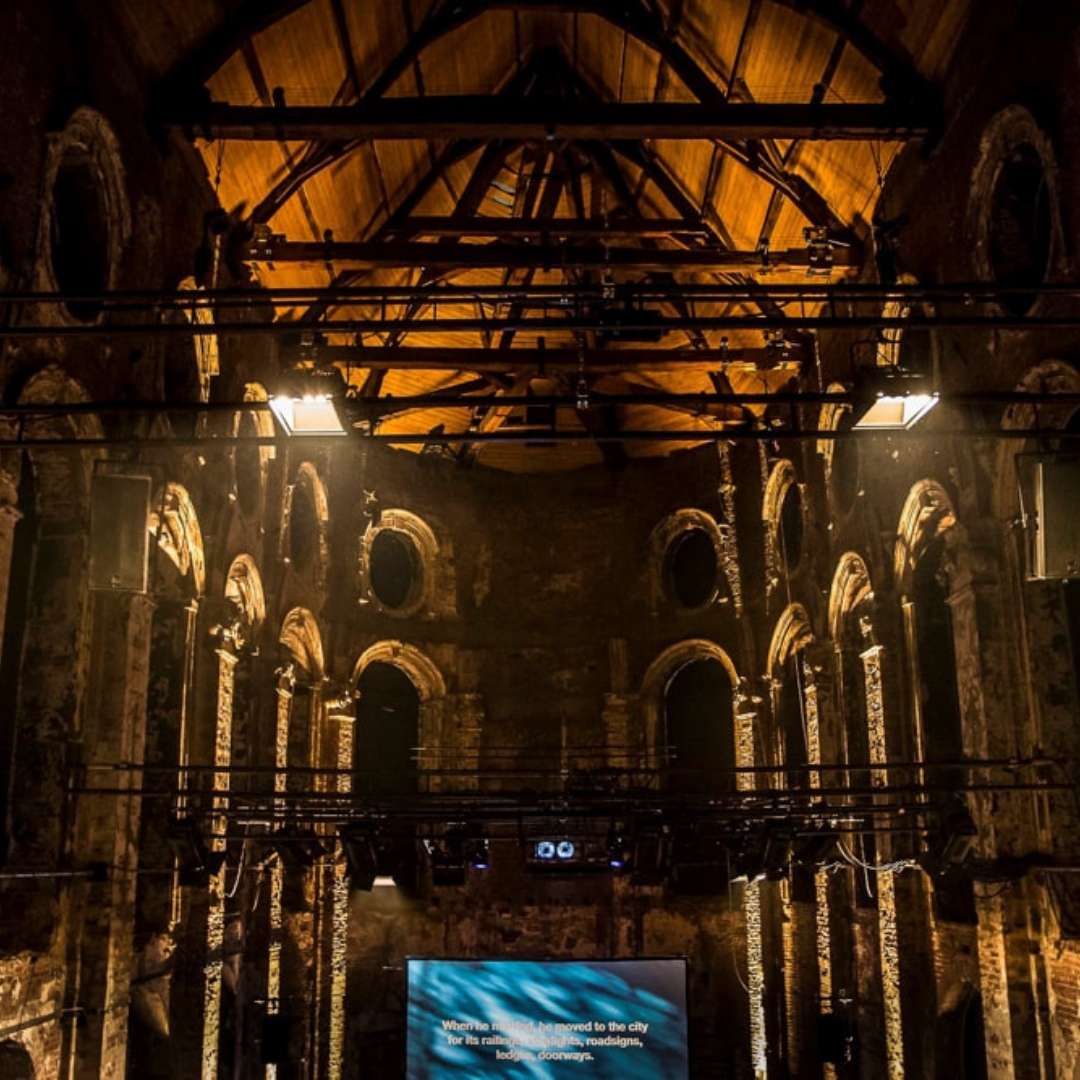
So, how has your music making process changed or evolved over time?
Axel: How old are you now?
We just turned thirty.
Axel: When I was your age, I vividly remember being so restless. There was a kind of urgency in me. I was really expecting to do something which could lead to more success, but we soon realized that we couldn’t really expect mainstream success. It’s not that Pablo’s Eye is a very experimental band, but it’s also not a pop band. It’s something in between.
Marie: That’s always a difficult place. When you’re in between, people cannot just put a label on what you are. Oh it’s not ambient enough, but it’s also not pop enough. It’s spoken words, but also not really.
Axel: Yet because much of the music we made was quite atmospheric, it did help us to have a career afterwards.
Marie: I did get to do a lot of voiceover commercials, so yes, it’s true that it helped us a lot in a different way.
Axel: Nowadays, I think we feel more comfortable. I don’t feel that pressure anymore. We are working in a very relaxed way. We’re just making music for ourselves and not really pushing for a record to be released.
Marie: There’s no rush these days. We have to be really happy about the tracks. And when it’s finished, it’s finished.
Axel: We actually feel a generation gap when working with younger people now. They have this drive that we used to have and want to do as many gigs as possible. But there are other things in life as well that are equally important to us, like reading a book or baking cookies with our godchild.
And what does Pablo’s Eye stand for?
Marie: So, what is it going to be this time, Axel?
Axel: Well, I love it when something sounds open. Paaa-Blooo-s-Eye. To me, that sounds very open. Also, I had a book and there was a photo of Pablo Picasso on the cover. It was called Picasso’s Eyes.
Marie: Also, your second name is Paul. And Paul in Spanish is Pablo. I am Pablo. Pablo I. Really. We can go on forever.


